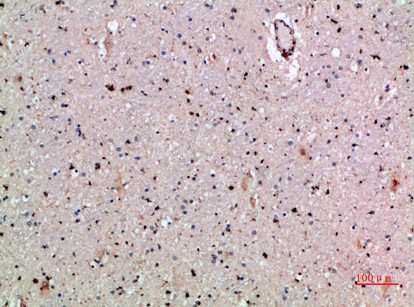| Function | C-type lectin receptor that binds carbohydrates mannose and fucose but also weakly interacts with N-acetylglucosamine (GlcNAc) in a Ca(2+)-dependent manner. Involved in regulating immune reactivity. Once triggered by antigen, it is internalized by clathrin-dependent endocytosis and delivers its antigenic cargo into the antigen presentation pathway resulting in cross-priming of CD8(+) T cells. This cross-presentation and cross-priming are enhanced by TLR7 and TLR8 agonists with increased expansion of the CD8(+) T cells, high production of IFNG and TNF with reduced levels of IL4, IL5 and IL13. In plasmacytoid dendritic cells, inhibits TLR9-mediated IFNA and TNF production. May be involved via its ITIM motif (immunoreceptor tyrosine-based inhibitory motifs) in the inhibition of B-cell-receptor-mediated calcium mobilization and protein tyrosine phosphorylation. (Microbial infection) Involved in the interaction between HIV-1 virus and dendritic cells. Enhances HIV-1 binding/entry and virus infection. Requires ITIM motif-associated signal transduction pathway involving phosphatases PTPN6 and PTPN11, SYK, Src kinases and MAP kinases. |
| Protein Name | C-Type Lectin Domain Family 4 Member AC-Type Lectin Ddb27C-Type Lectin Superfamily Member 6Dendritic Cell ImmunoreceptorLectin-Like ImmunoreceptorCd Antigen Cd367 |
| Database Links | Reactome: R-HSA-5621480 |
| Cellular Localisation | Cell MembraneSingle-Pass Type Ii Membrane ProteinExtracellular Side |
| Alternative Antibody Names | Anti-C-Type Lectin Domain Family 4 Member A antibodyAnti-C-Type Lectin Ddb27 antibodyAnti-C-Type Lectin Superfamily Member 6 antibodyAnti-Dendritic Cell Immunoreceptor antibodyAnti-Lectin-Like Immunoreceptor antibodyAnti-Cd Antigen Cd367 antibodyAnti-CLEC4A antibodyAnti-CLECSF6 antibodyAnti-DCIR antibodyAnti-LLIR antibodyAnti-HDCGC13P antibody |
Information sourced from Uniprot.org













